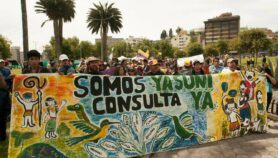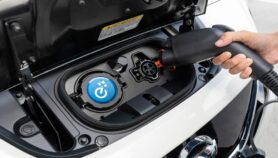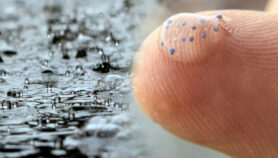By: Li Jiao
Send to a friend
The details you provide on this page will not be used to send unsolicited email, and will not be sold to a 3rd party. See privacy policy.
[BEIJING] An award-winning solar stove could provide a cheap way to cook — and generate heat and electricity — for Tibetan nomads, according to its inventor.
SolSource, a lightweight, foldable satellite-shaped device, turns its own waste heat into electricity — or stores it in thermal fabrics for later use — and can even charge mobile phones, said Scot Frank, the young American whose invention was one of the 2010 SEED Award winners unveiled by the UN Environment Programme (UNEP) this month.
The SEED Initiative supports innovative, small-scale and locally driven entrepreneurs who integrate social and environmental benefits into their businesses.
When Frank visited rural areas of China’s Qinghai province in 2007, he found Tibetan farmers burning solid fuels for daily needs, causing serious health and environmental problems. That was when he had the idea of a device that used abundantly available solar energy for cooking and heating.
SolSource — created by One Earth Designs (OED), a company led by Frank — is a cheap, energy-harnessing device that can be produced for as little as US$10 and is "appropriate for the nomadic and agricultural lifestyle [in Qinghai]", Frank, aged 25, told SciDev.Net. He spent time ensuring it could function in the exposed, high winds of the Tibetan plateau.
Farmers did not like previous solutions because they were too expensive, not portable, or broke easily in the harsh conditions of the Tibetan region. Working closely with the government and local people, OED was able to learn about local life and needs, said Frank.
SolSource could help local families live healthier lives as they will not be exposed to toxic fumes from burning solid fuels, and will save money, resulting in greater disposable income, said Constance Hybsier, programme manager of the SEED Initiative.
Children are able to study at home after it gets dark, and women would spend considerably fewer hours collecting fuel, Hybsier added.
OED’s next step is to seek out and work with manufacturers in China to produce the SolSource, said Frank. OED would then want to partner with governments and organisations in China to distribute the technology.













